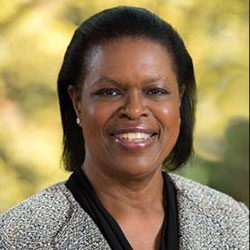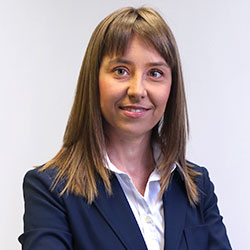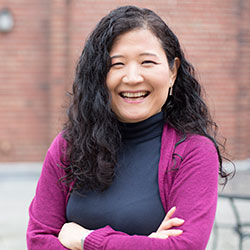The 2019 Technology Transfer Society Conference is pleased to welcome the following keynote speakers.
Theme 1 – Technology transfer and innovation policy
Kaye Husbands Fealing
Data in the Service of Policy
Kaye Husbands Fealing is Chair of the School of Public Policy at Georgia Tech. She specializes in science of science and innovation policy, and the underrepresentation of women and minorities in STEM fields and the workforce. Prior to Georgia Tech, she was a professor at the Humphrey School of Public Affairs, University of Minnesota, and a study director at the National Academy of Sciences. Prior to the Humphrey School, she was the William Brough professor of economics at Williams College, where she began her teaching career in 1989. She developed and was the inaugural program director for the National Science Foundation’s (NSF) Science of Science and Innovation Policy program and co-chaired the Science of Science Policy Interagency Task Group, under a subcommittee of the National Science and Technology Policy Council. At NSF she also served as an economics program director. She was a visiting scholar at MIT’s Center for Technology Policy and Industrial Development, where she conducted research on NAFTA, and on strategic alliances between aircraft contractors and their subcontractors.
Husbands Fealing was elected to the Executive Board of the American Association for the Advancement of Science (AAAS) (term 2017-2021) and named AAAS Distinguished Fellow. She is the recipient of the 2017 Trailblazer Award from the National Medical Association Council on Concerns of Women Physicians. She serves or has served on several panels and committees for the following organizations: AAAS; American Academy of Arts and Sciences; American Economic Association; Council on Canadian Academies; NSF; NIH; and USDA. She is a board member for the Center for Organization Research and Design at Arizona State University, the Society for Economic Measurement, and the Georgia Intellectual Property Alliance. Husbands Fealing holds a Ph.D. from Harvard University in economics, and a B.A. in mathematics and economics from the University of Pennsylvania.
Theme 2 – Technology Commercialization and Entrepreneurship
Chiara Franzoni
Fostering High-Risk, High-Gain Research
Dr. Franzoni is an expert of Economics of Science and Innovation. She has a long-term interest on the careers and incentives of scientists to conduct research and how these may be altered by new policies of science and innovation. Prior research focused on the patenting activities of researchers and the compatibility of regulations, such as the Bahy-Dole act and the grace period with publication of research in open science. She has worked extensively on the international mobility of scientists and its implications on performance and collaboration networks at the individual and team level. In the latest years she has investigated the implications for science of the emergence of social networks and digital platforms, with a focus on citizens and crowd science, crowdfunding of entrepreneurial ventures and of scientific research projects.
Her research has appeared in prestigious journals, including Science, and the Proceedings of the National Academy of Sciences, and has informed policymaking at national and international level. She serves in panel expert groups that support the design of policy intervention in matters of IP and entrepreneurial finance.
Theme 3 – Inclusive Innovation
Yuko Aoyama
Social Innovators as Agents of Technology Transfer
Yuko Aoyama (Ph.D., UC-Berkeley) is an economic geographer with expertise in global economic change, technological innovation, industrial organization, and cultural economy. Her research interest lies in developing geographic understandings of global capitalisms and governance from institutional and comparative perspectives. Ranging from research on transnationalization of retailing and entrepreneurship, virtualization of logistics, transnational social entrepreneurship to cultural tourism, her work demonstrates how place specificity sustains distinctiveness in spite of the increasing global integration of economies, in the USA, Japan, Germany, Spain, and India. Her most recent research focuses on collaborations among for-profit, non-profit, and hybrid stakeholders conducting social innovation in India, engaged with delivery of goods and services in areas such as health, education, and renewable energy. She has been awarded an Academic Writing Residency at the Rockefeller Foundation’s Bellagio Center, Abe Fellowship from the Social Science Research Council, as well as research grants form the National Science Foundation (Geography and Spatial Science and Economics Programs), National Geographic Society, and the Association of Asian Studies. She has served as reviewers for a wide range of scholarly journals and books, and held editorial roles, including an editor-in-chief and executive editor of Economic Geography, (2006-2016). She also reviews grant proposals internationally, including Austria, Canada, Finland, Japan, Spain, UK, and USA.



